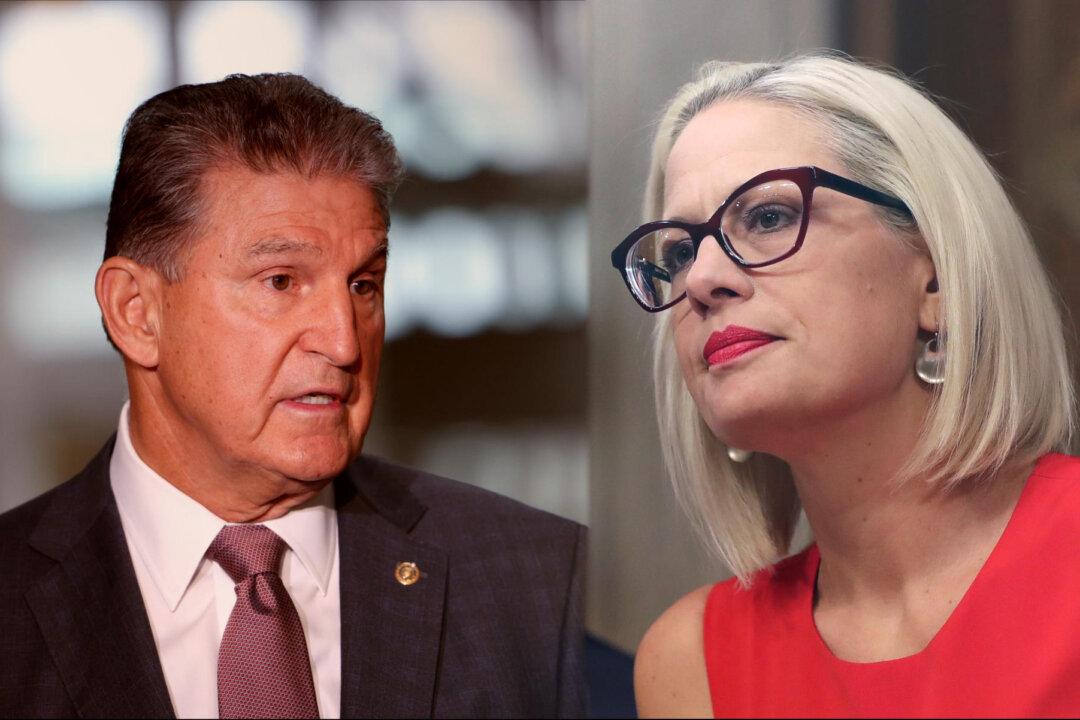Democrats are accusing moderate Sens. Joe Manchin (D-W. Va.) and Kyrsten Sinema (D-Ariz.) of racism after the duo rejected an effort by their party to abolish the filibuster in order to pass election legislation over the objections of all 50 GOP senators.
Just before Congress returned from its winter recess, Senate Majority Leader Chuck Schumer (D-N.Y.) made clear in a Jan. 3 tweet that federal election legislation would be the party’s primary concern upon their return.





